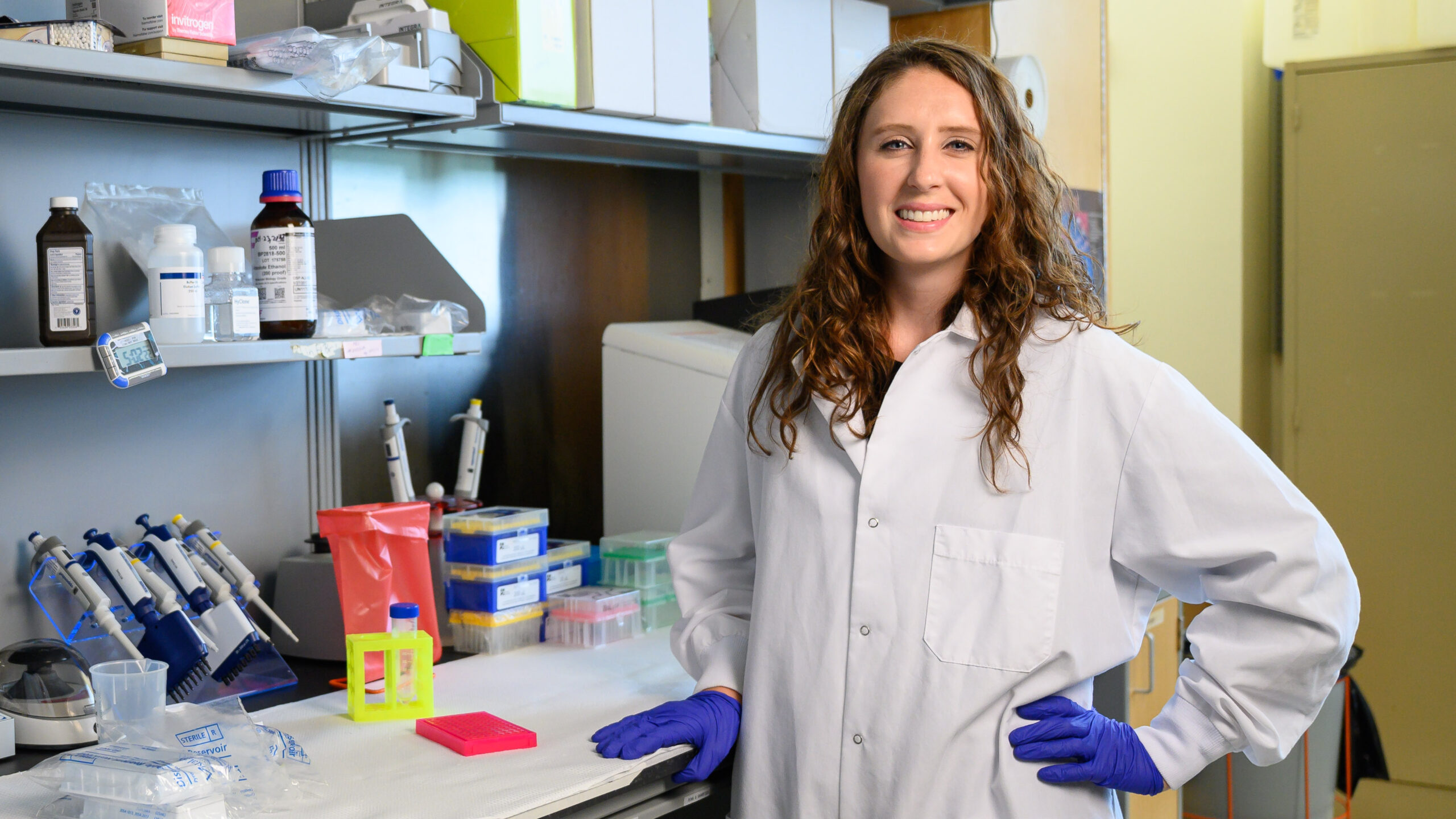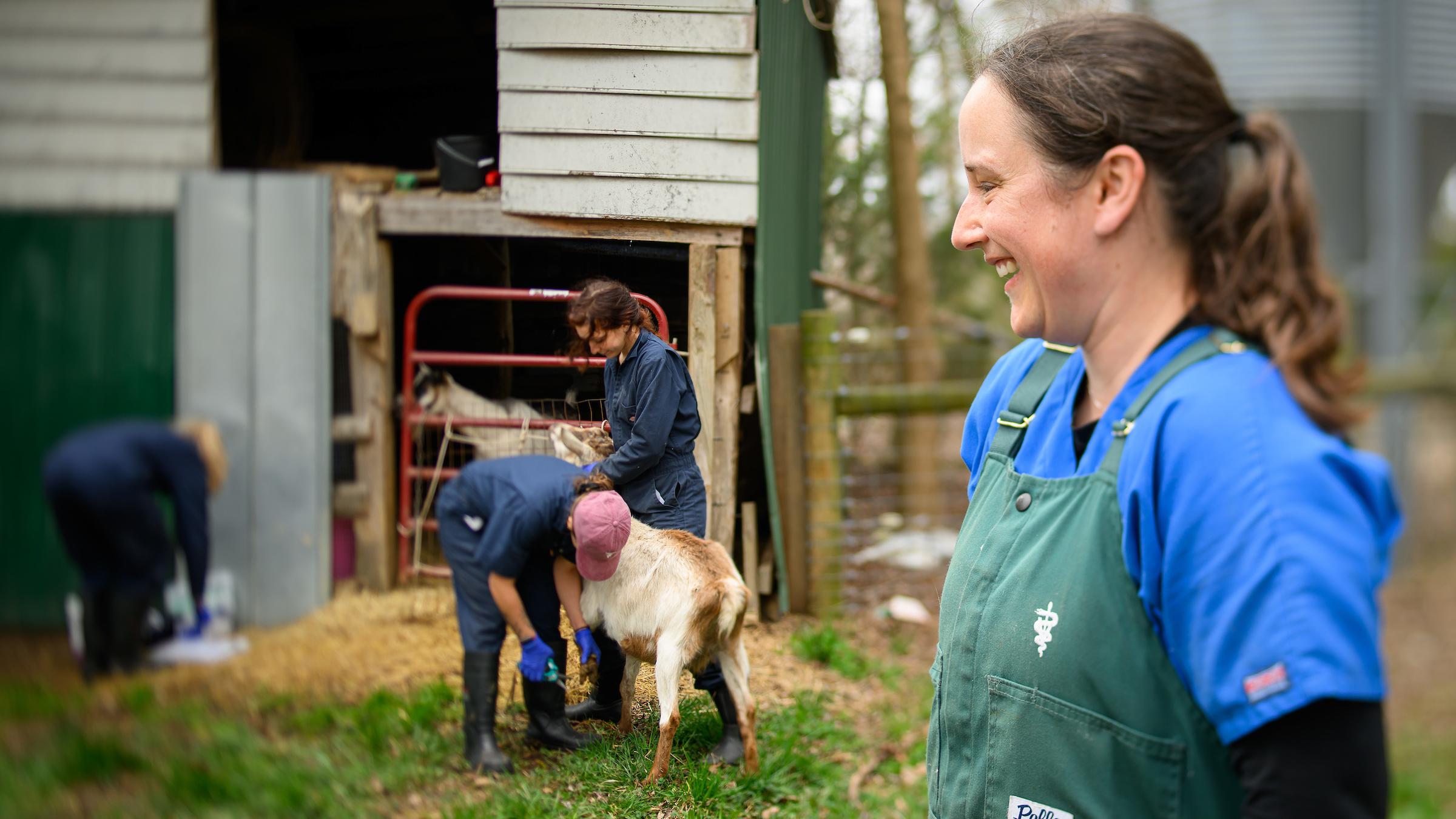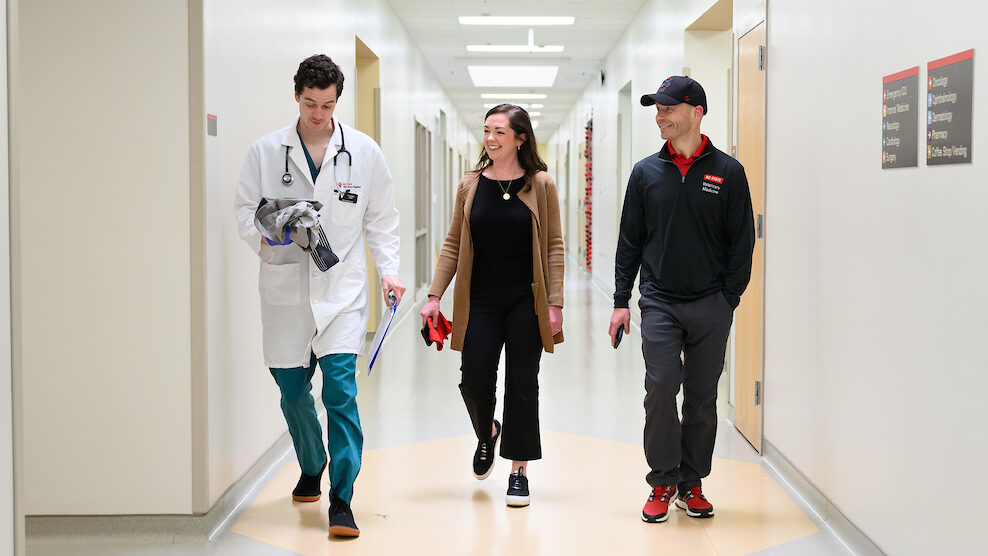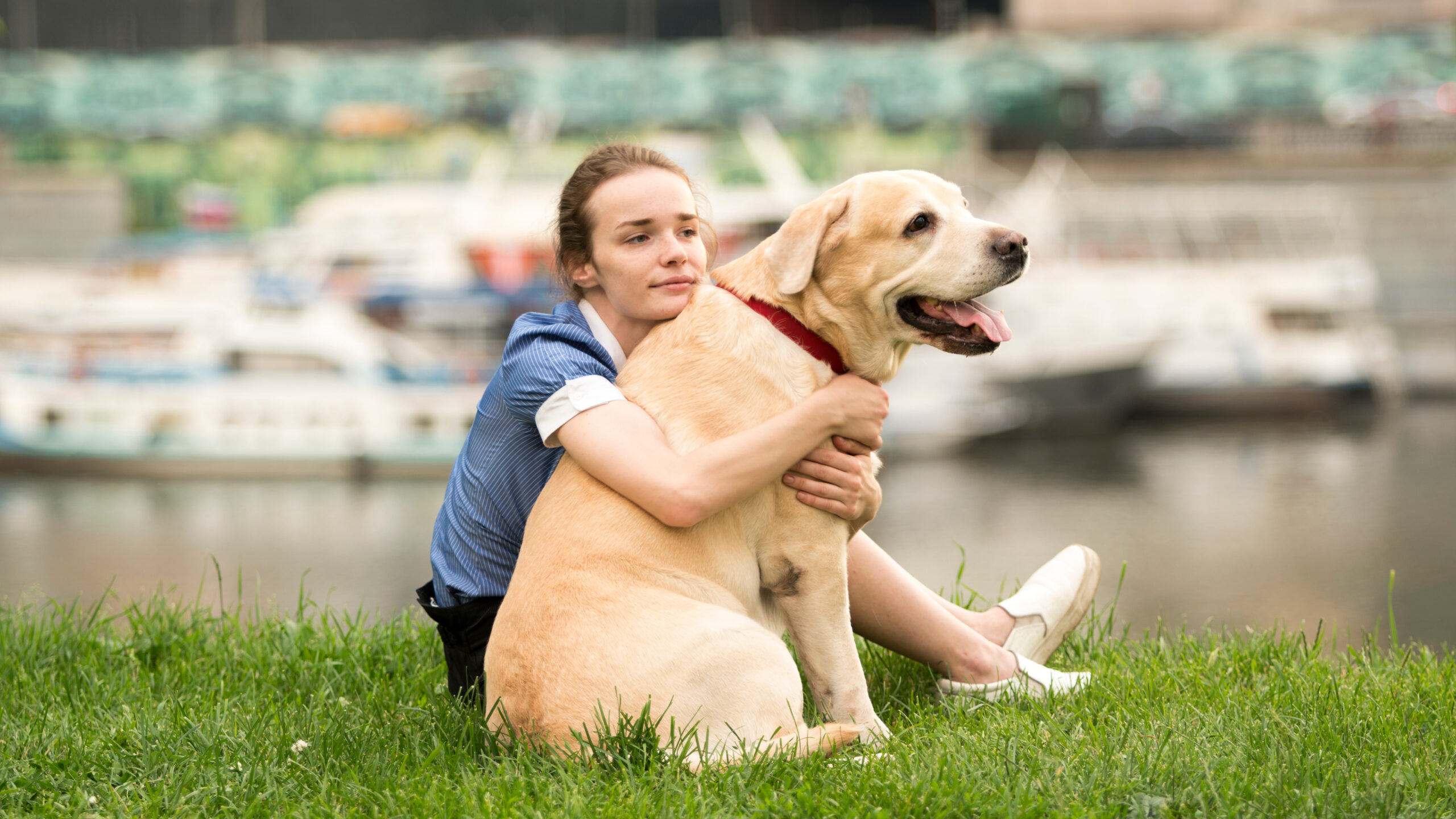A New Discovery, An Unforgettable Research Experience

Valerie Nelson was just looking to see what it was like to work in a research lab. What she found will impact lives around the world.
While taking part in the Veterinary Scholars Program last summer at the NC State College of Veterinary Medicine, Nelson made an unexpected discovery. She had never worked in a research lab before, and was in the middle of a 10-week project comparing 100 isolates of Salmonella from human stool samples taken between 2014 and 2016 from the southeastern United States. The project was looking for genes that resist live-saving antimicrobial medicine.
Nelson’s instructions were to compare the human samples to previously described samples from pig feces and soil, checking on chances of transfer between the sources.
Then one day she presented Ph.D. student Daniel Monte with the results of some of her genome sequencing.
“He was helping me put together a chart of the findings,” said Nelson. “As he was flipping through it he got really excited all of a sudden, and I had no idea why.”
Among her findings, Nelson had located the gene mcr-3.1, which makes Salmonella resistant to colistin, a drug given as a last resort to treat particularly pernicious infections.
It was known that the gene could now be transmitted to organisms and that it had spread to 30 countries from China. It was not known that it had arrived in the United States. Nelson had just made the first discovery of the gene in a sample from a human in the U.S. The mcr-3.1-positive sample had come from someone who traveled to China before becoming sick.
“I honestly didn’t know what it was until talking with Daniel,” said Nelson. “My jaw dropped.”
Nelson, a member of the CVM Class of 2021, had spent the first few weeks of the Veterinary Scholars Program mastering the basics of what it means to work in a lab — learning safety issues and clean-up protocol and even memorizing just where to find every tool she needed for her research.
Now, she is the co-author of a research paper announcing the mcr-3.1 discovery that was recently published in the Journal of Medical Microbiology.
“For me, it was really kind of like starting at zero,” said Nelson. “I expected to learn a lot, which I did. I definitely did not expect all the rest.”
The Veterinary Scholars Program experience appealed to Nelson because it was just that — experience.
Available every summer for first- and second-year veterinary medicine students, VSP opens up a world of clinical research and biomedical laboratories to a large number of CVM students who have often never fully considered the wide branches of veterinary medicine. Students are given a list of research projects, rank their favorites and are paired with CVM mentors.
Nelson was immediately drawn to the antimicrobial resistance study — and its implications for food safety and both human and animal health — overseen by Siddhartha Thakur, director of global health at the CVM and NC State. The CVM is a world leader in antimicrobial resistance research and surveillance.
Apart from taking part in a real research project, VSP students receive guidance on effectively developing hypotheses, applying for grants and creating manuscripts. They don’t just learn how to do the physical lab work; they learn how to present their findings at big-deal science symposiums.
“From the beginning, it sticks with you,” said Nelson of the program. “You get to understand the process of creating an idea and tackling that idea yourself and showcasing it to others. That was a big thing for me — learning how to present my thoughts.
“The program did a great job at making it all accessible to people who were intimidated by research, such as myself, and letting you realize that you can do it, too.”
Nelson came to the CVM with a wealth of academic experience. The valedictorian of the NC State Class of 2016, the native of Stony Point, N.Y., had entered the animal science program as an undergraduate having never touched a cow or a horse or a pig. But before entering veterinary school, she spent a year assisting with the university’s swine education unit and working with dairy cattle while finishing her degree.
“NC State has a ton of opportunities, which I have really loved, and this research program really shows you the scope of the veterinary profession,” said Nelson. “I think NC State puts a good emphasis on that mindset that veterinarians don’t just have to be clinicians. They can be researchers. They can discover. They can teach.”
Or they can do all of the above. For now, Nelson plans to continue focusing on small animal medicine at the CVM — she often assists at area veterinary hospitals — but is now determined to implement research into a future career.
“My dream job is to be a clinician and conduct research projects as well,” she says. “I’d love to work at a university or a veterinary school. That’s my endgame.”
~ Jordan Bartel/NC State Veterinary Medicine


